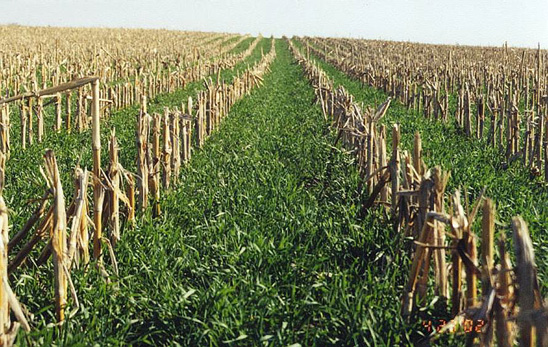UK soil scientists begin cover crop research project
UK soil scientists begin cover crop research project

Cover crops are an old tool to control soil erosion, but agricultural producers are rediscovering them. The practice has been gaining traction across the United States in recent years, with some states now offering producers financial incentives to grow cover crops.
New studies show cover crops may have the potential to suppress weeds and keep nitrates out of the water supply. However, more research needs to be done to broaden and quantify these claims.
“Kentucky growers have many unanswered questions about how much direct value cover crops have in preserving soil nitrogen and the consequences this has for optimal nitrogen fertilizer rates for their cropping systems,” said John Grove, soil scientist with the University of Kentucky College of Agriculture, Food and Environment.
In a new research project funded in part by a Conservation Innovation Grant from the Natural Resources Conservation Service, Grove and fellow UK soil scientist Mark Coyne asked cooperating producers in Central and Western Kentucky to plant a cover crop of their choosing this past fall. This spring, the researchers will measure the amount of nitrogen, if any, the cover crops remove from the ground. If the crops retain nitrogen, it will reduce the amount available in the soil and prevent leaching. Once producers kill the cover crops in the spring, allowing them to decompose and release nitrogen back into the ground, their subsequent corn crop may not need as much fertilizer as usual. This could save producers money and potentially help the environment.
The multi-year project will allow researchers to determine if nitrogen conserved by cover crops carries over in subsequent crop years and what adjustments growers should make to their fertility programs.
“In the long run, this will help growers maintain crop yields and profits, while simultaneously reducing the potential for adverse impacts of excess nitrogen on water quality,” Coyne said.
Research


